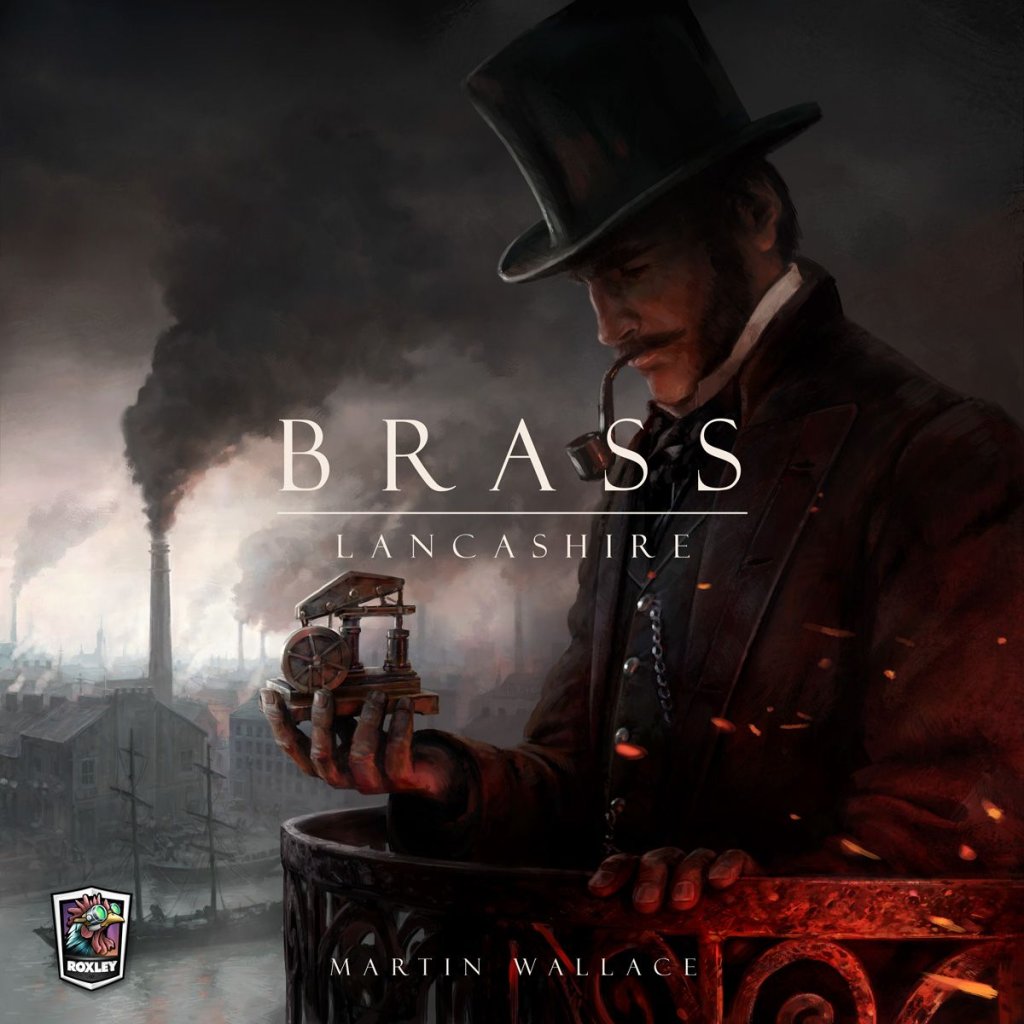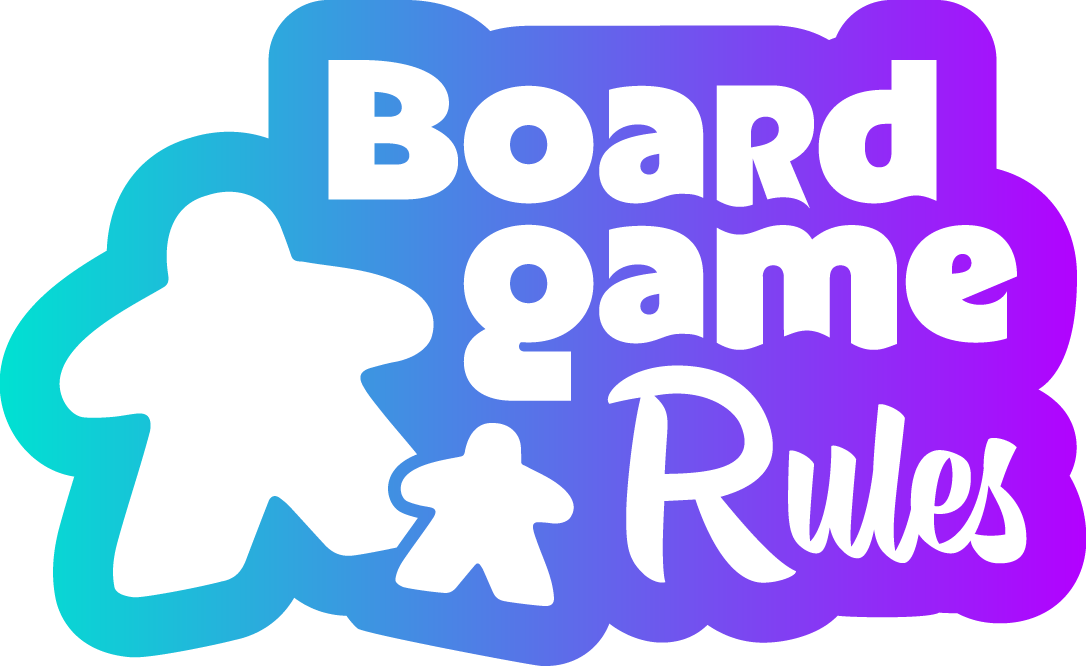Brass: Lancashire
2007
Immerse yourself in the world of cotton entrepreneurs in 'Brass: Lancashire'. Strategize, build and capitalize in this economic strategy game set during the Industrial Revolution.
120
minutes
2 - 4
player(s)
14+
Medium Heavy


About the game
Brass: Lancashire is a highly acclaimed economic strategy board game that immerses you in the Industrial Revolution of 18th-century England. As ambitious entrepreneurs, players are tasked with leading their own industries and navigating the intricate world of industrial and economic progress. The game’s setting, Lancashire – the cradle of the Industrial Revolution, adds a historical and educational touch to the gameplay.
The game’s theme revolves around the development of various industries such as cotton mills, coal mines, iron works, and canals and railroads for transportation. The goal is not just to build, but to efficiently manage your resources, create a robust network, and outperform other players in terms of profitability.
Read More
Setup and rules summary
Game components Unboxing the fun!
Brass: Lancashire is a strategy game of economic development in the Industrial Revolution. The game contains several different components, each with a specific purpose that contributes to the overall gameplay:
1. Game Board: The game board is a map of Lancashire and surrounding areas, with different cities and connections between them. Players place their industry tiles on the spaces on the board to build their economic empires.
2. Money: The money in the game is used by players to build their industries, pay for resources, and take other actions. It is a key component of the game’s economy, and managing it effectively is crucial to success.
3. Industry Tiles: These tiles represent the different industries that players can build. There are five types: Cotton Mills, Coal Mines, Iron Works, Ports, and Shipyards. Each type of industry has different costs and benefits, and interacts with the other components in different ways.
4. Link Tiles: These tiles represent the canals and rails that players build to connect their industries. They are used to transport resources and to extend the reach of a player’s economic empire.
5. Player Mats: Each player has a mat that they use to track their available industries and links. The mat also provides a quick reference for the costs and benefits of the different industry types.
6. Cards: The game includes a deck of cards that players draw from. Each card has a city or an industry type on it, and they are used to determine where and what a player can build.
7. Coal Cubes and Iron Tokens: These represent the resources of coal and iron that are used to build industries. Coal cubes are taken from the supply and placed on Coal Mines on the board, while Iron Tokens are placed directly on the supply track.
8. Development Markers: These are used to track a player’s technological progress. Players can remove them from their player mat to build more advanced industries.
9. Victory Point Markers: These are used to track each player’s Victory Points, which are gained by building industries and links, and by shipping cotton. The player with the most Victory Points at the end of the game wins.
10. Turn Order Markers: These are used to determine the order of play in each round. The order can change based on the actions taken by the players.
Game setup Lay it out, line it up, let’s go
Brass: Lancashire is a strategy and economy-building game that requires careful planning and strategic thinking. Here are detailed steps on how to set up the game:
Step 1: Player roles
Every player in Brass: Lancashire takes on the role of an entrepreneur in the industrial revolution. The goal is to establish industries and create wealth. Each player represents a private business owner and there are no specific roles beyond this.
Step 2: Board placement
Place the game board in the center of the playing area where it is easily accessible to all players. The board shows a map of Lancashire with various towns, cities and connections between them. Each player should also receive a player mat, where they will be placing their industries.
Step 3: Initial resources
Each player receives a set of resources at the start of the game. This includes:
- 30 Industry counters in their chosen color
- 16 Link counters in their chosen color
- 30 money in chosen denominations
Step 4: Card Distribution
Shuffle the deck of cards and deal each player 8 cards. These cards will be used to perform actions during the game.
Step 5: Placing the Demand Markers
Randomly draw and place 8 demand markers on the corresponding spaces on the board. These markers indicate the demand for cotton at the port and foreign markets.
Step 6: Determining Turn Order
Determine the initial turn order randomly and place the player tokens on the turn order track on the board.
Step 7: Setting up the Coal and Iron Market
Place the coal cubes on the Coal Market in descending order, starting with the highest numbered space. Repeat this process with the iron bars on the Iron Market.
Once all these steps are completed, you are ready to start the game. Remember, the key to success in Brass: Lancashire is not just about generating revenue, but also making wise investments to build a strong economy.
Game flow Round and round we go
Brass: Lancashire is a strategy board game for 2-4 players played over two halves: the Canal Phase and the Rail Phase. Each half consists of several rounds, and each round allows players to take two actions from a list of possible actions. The game concludes after the Rail Phase, after which points are calculated to determine the winner.
The Canal Phase:
This is the first phase of the game. During this phase, players can establish industries and create canal routes to connect locations. Players cannot build railroads during this phase. The Canal Phase continues until all the cards from the Draw Deck are drawn and players have played all their cards. It generally consists of several rounds.
- Draw Cards: At the start of each round, players draw cards from the Draw Deck up to their hand limit.
- Perform Actions: Players can perform two actions from the following options: build an industry, build a canal, take a loan, or develop industries.
- End of Round: Players discard any unused cards and draw up to their hand limit. The player with the highest score becomes the first player for the next round.
The Rail Phase:
This phase begins after the Canal Phase. All canal links are removed from the board, but industries remain. The Rail Phase continues until all the cards from the Draw Deck are drawn, and players have played all their cards. It also generally consists of several rounds.
- Draw Cards: At the start of each round, players draw cards from the Draw Deck up to their hand limit.
- Perform Actions: Similar to the Canal Phase, players perform two actions from the following options: build an industry, build a rail link, take a loan, or develop industries. However, in this phase, players can also upgrade their industries.
- End of Round: Players discard any unused cards and draw up to their hand limit. The player with the highest score becomes the first player for the next round.
End of the Game:
The game ends after the Rail Phase. Players calculate their points based on their industries and connections. The player with the most points is declared the winner of ‘Brass: Lancashire’.
Players'turn One turn to rule them all
The game of Brass: Lancashire revolves around economic strategy, where players take on the roles of entrepreneurs in the Industrial Revolution. During a player’s turn, they have the option to perform two actions from the following choices: build, network, develop, sell, or take a loan.
1. Build:
- Players can choose to build an industry tile on a location on the game board. To do this, they must discard a card that matches the location or industry they intend to build.
- The cost of building varies depending on the industry and includes both money and resources like coal or iron.
- Building industries gives players income and victory points, affecting their standings in the game.
2. Network:
- If a player chooses to network, they can place a link (representing their rail or canal) between two locations on the board.
- The player must discard a card with a location that they’re connecting to.
- Building a network can help players in future rounds by providing access to more resources and locations.
3. Develop:
- The develop action allows players to remove one or two tiles from their player board which in turn uncovers more advanced industries.
- Players must use an iron resource to perform this action.
- Developing can be a strategic move to gain access to more lucrative industries earlier in the game.
4. Sell:
- If a player chooses to sell, they can sell cotton from a mill to a foreign market or to a port they have built.
- This action requires the player to discard a card.
- Selling cotton can increase a player’s income level, allowing them to perform more costly actions in future turns.
5. Take a Loan:
- Lastly, players may choose to take a loan, which provides immediate cash at the cost of reducing their income.
- While this action can give players the necessary funds to perform actions, it can also hinder their income generation in the long run.
In Brass: Lancashire, wise use of these actions can greatly affect the outcome of the game. Players need to strategically plan their moves and react to the actions of their opponents in order to thrive in the industrial landscape and emerge victoriously.
End of the game All good games must come to an end
The game of Brass: Lancashire concludes after the second round, which is referred to as the Rail Era. At this point, all players have exhausted their decks, taking a total of two full rounds of turns. The game does not end prematurely, so every player gets an equal number of turns.
Upon completion of the Rail Era, it’s time for final scoring. Prior to this, players must perform a few actions:
- Income Reduction: Players need to move their income markers backwards on the income track equal to their position on the victory point track. This simulates the cost of maintaining high-scoring industries.
- Final Industry Sell Off: Players can sell off any remaining industries on their player mat for half the printed victory point value, rounded down. This is added to their total on the victory point track.
After these steps, the final scoring process begins, which is based on the following victory conditions:
- Connected Network: Players score points for their own network of canals and rails, with each connected city or town earning them points.
- Developed Industries: Players score points for each of their developed industries. The exact number of points depends on the level of the industry.
- Victory Points: Players add the victory points they have accumulated throughout the game from building, upgrading, and selling industries.
The player with the highest total points at the end of the final scoring is declared the winner. If there’s a tie, the player with the most money left is the winner.
Scoring Did you outsmart your rivals?
‘Brass: Lancashire’ is a strategic, economic game where players compete to build and establish their industries during the Industrial Revolution. The game features a unique scoring system that encourages players to strategize and plan their moves carefully. Below is a breakdown of how points are awarded and the tie-breaking rules.
Primary Scoring
- Industry Tiles: When a player flips an industry tile, they score points equal to the number on the top of the tile. This can occur during the game when the tile is connected to a port or when all the resources are taken from an iron works or coal mine.
- Canals and Railways: At the end of the Canal and Rail Phases, players score points for each canal or rail connected to their flipped tiles. Canals are worth 2 points each and rails are worth 1 point each.
- Develop Action: Players can also score points by using the “Develop” action to remove one or two industry tiles from their player board. This action gives points depending on the round – 1 point per tile in the Canal Phase and 2 points per tile in the Rail Phase.
End of Game Scoring
- Industry Tiles: At the end of the game, any remaining industry tiles on the player’s board that are flipped score points equal to the number on the top of the tile.
- Links: Players score points for their links on the board. Each link is worth 1 point.
Tie-Breaking Rules
In the event of a tie, the tie-breaker is determined as follows:
- The player with the most money at the end of the game wins.
- If there is still a tie, the player who was earlier in the turn order wins.
Particular Cases and Exceptions Wait… is that legal?
Brass: Lancashire is a strategy board game rich with historical context and strategic depth. Though the rules are generally straightforward, there are several special rules, exceptions, and clarifications that can greatly influence the outcome of the game. Here are some of the most important ones:
Double Rail Build: In the Rail Era, players may build two rail links for the cost of one iron and one coal. However, the player must be able to pay both costs, even if the second rail link is not built.
Overbuilding: A player may overbuild their own industries, replacing a lower-level industry with a higher-level one. However, they must pay the full cost of the new industry, and cannot overbuild if the industry tile they would replace is currently flipped.
- Loans: A player can take a loan at any time during their turn, but they cannot repay it. Each loan reduces a player’s income by £10 and is worth -10 victory points at the end of the game.
- Foreign Markets: A player can sell cotton to the foreign market, but only if the distant market is closed (i.e., all distant market tiles have been drawn).
- Coal and Iron Markets: These markets are restocked with resources only at the end of the canal and rail phases, not during the game. If a player uses coal or iron from the market, they must replace it with coal or iron from their own supply.
End of Canal Phase: At the end of the Canal Phase, all canal links and level 1 industries are removed from the board. The players keep their money and income level for the next phase.
- Scoring: Scoring in Brass: Lancashire is complex and occurs at two different points in the game: once at the end of the Canal Phase, and once at the end of the Rail Phase. Points are awarded for flipped industry tiles and for connected cities and ports. It’s important to remember that only flipped tiles generate points.
- Turn Order: The player with the lowest income goes first in the next round. In case of a tie, the player who was earlier in the turn order in the previous round goes first.
These are just a few of the special rules and exceptions in Brass: Lancashire. As with any game, a thorough understanding of the rules can make for a more enjoyable and competitive experience.
Tips and tricks Play smarter, not harder!
Brass: Lancashire is a complex strategy board game that requires careful planning and strategic thinking. Here are some advanced strategies, beginner tips, and common mistakes to avoid that can help optimize your gameplay.
Advanced Strategies:
-
In the early game, focus on building industries that are cheap and provide quick returns, such as cotton mills and coal mines. This will help you gain a solid economic base that you can expand upon in the later stages of the game.
-
Pay attention to the demand for different resources. If you see that there’s a high demand for a certain resource, consider building industries that produce that resource to take advantage of the demand.
-
Try to monopolize certain areas on the map. If you can control key locations, you can limit your opponents’ options and force them to engage with you on your terms.
Beginner Tips:
-
Don’t neglect the importance of rail links. They can provide you with a steady income and are crucial for transporting goods.
-
Be sure to balance your strategy between short-term gains and long-term planning. It’s easy to get caught up in the pursuit of immediate profits, but don’t forget to plan for the future.
-
Keep an eye on your opponents’ strategies. Try to anticipate their moves and adjust your strategy accordingly.
Common Mistakes to Avoid:
-
One common mistake is overextending yourself. It’s important to manage your resources carefully and not overcommit to a strategy that you can’t sustain.
-
Another mistake is neglecting the development of your industries. Remember that the game is not just about expansion, but also about improving and updating your existing industries.
-
Don’t underestimate the importance of coal. It’s a crucial resource that can be used to fuel your industries and rail links.
Ways to Optimize Gameplay:
-
Make sure to use your actions efficiently. Each action you take should contribute to your overall strategy and bring you closer to your goals.
-
Try to maintain a diverse portfolio of industries. This will give you more flexibility and allow you to adapt to changing circumstances.
-
Remember to always be thinking several turns ahead. The key to success in Brass: Lancashire is planning and foresight.
